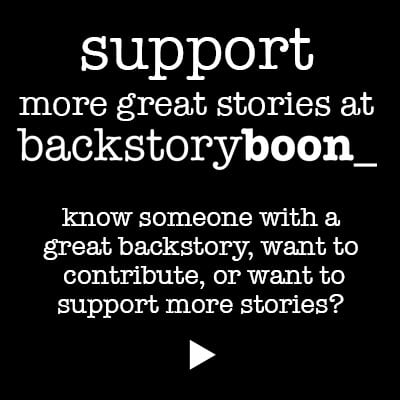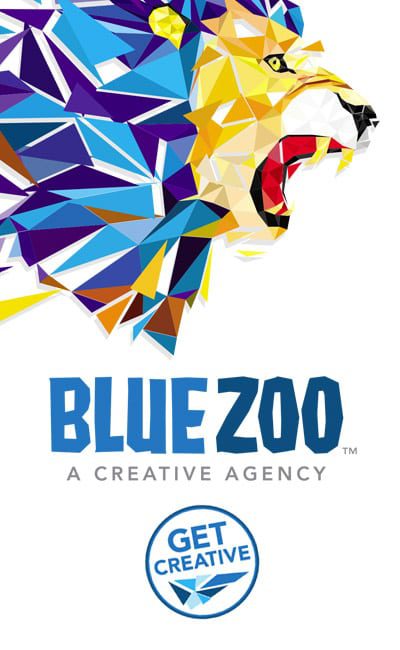Visit BackstoryBoon.com for the latest and upcoming real stories about real people.
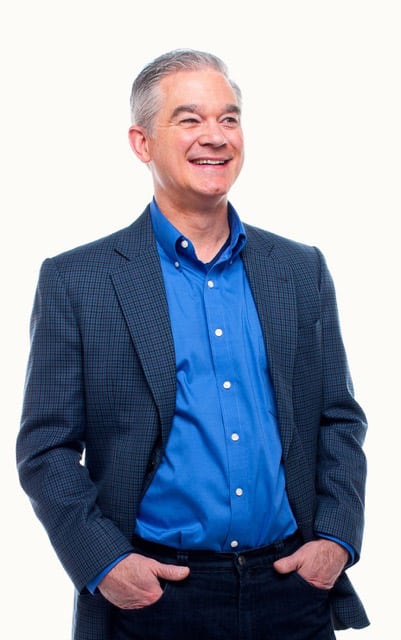
If you see movies of kids who grew up in a “holler,” or kids who grew up in the middle of nowhere, that would be me.
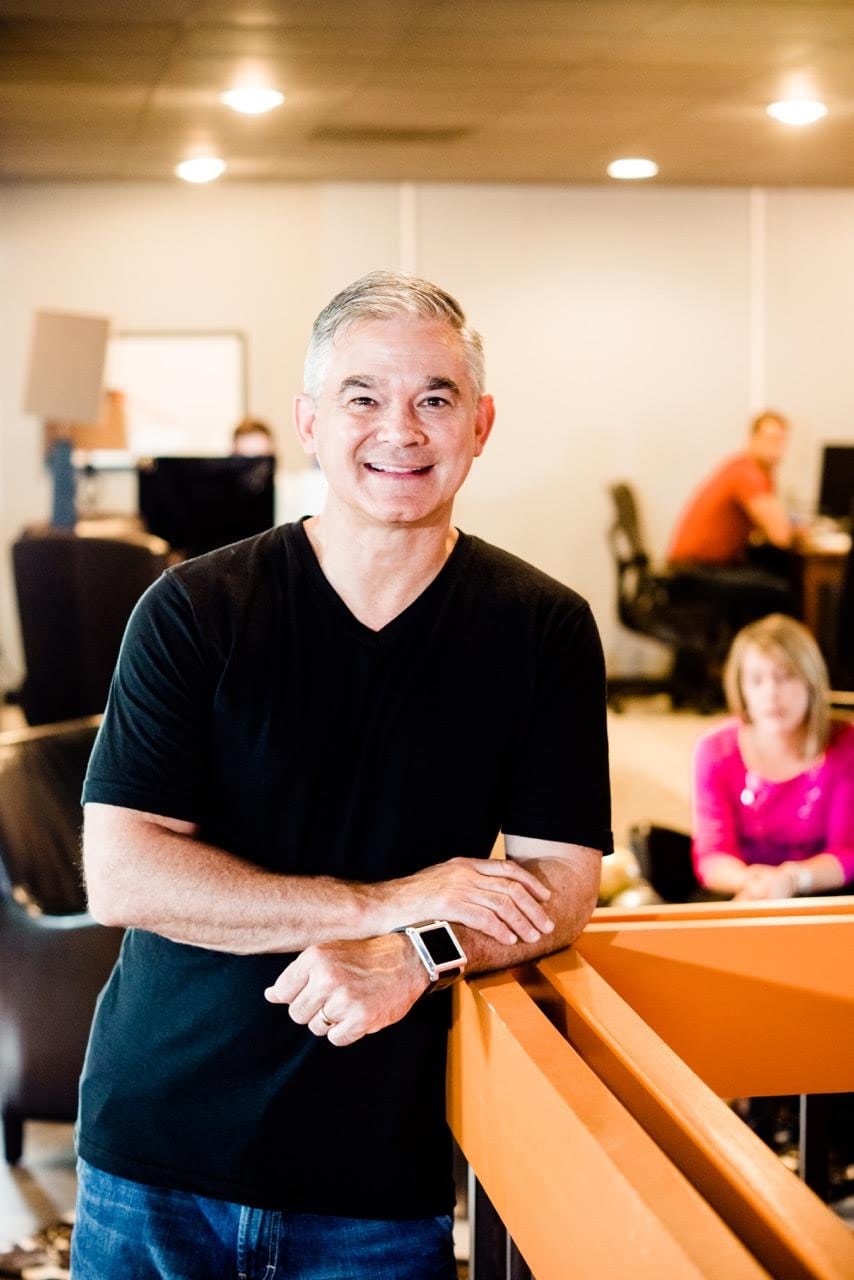
That first year (at college) I thought, “am I going to make it? Am I smart enough?” Then I started to realize, I just simply wasn’t prepared.
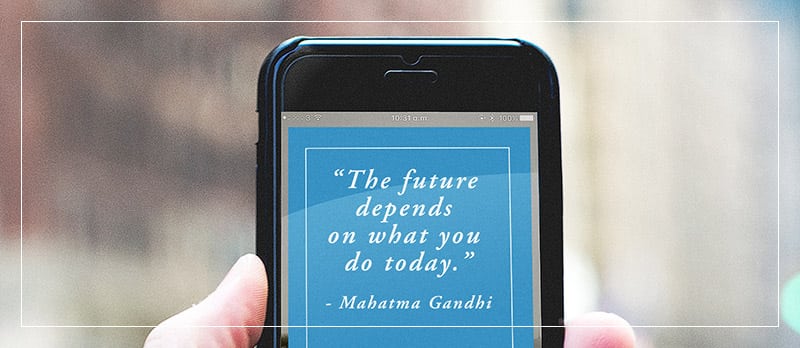
Often, what separates the merely hardworking from the truly successful is vision–understanding that your actions today affect your goals for the future. Rick West exemplifies this. From a young age, he understood that life is about trajectory, and where you land is about where you aim. Deciding in high school to leave his hometown to attend college, choosing a college based on the job it would allow him to get after college, pursuing a job that, in his words, he would have never been recruited for–all these visionary decisions built the foundation on which he has now built a wildly successful technology business. He also counted the cost, contemplating and accepting the risks required for his visions, but also having courage to follow through with them. Rick West offers a great example of a truly visionary businessman and a true American Dream, rising from rural Appalachia to national renown.
On his youth in Appalachia
I grew up in Kentucky, in Appalachia. If you see movies of kids who grew up in a “holler,” or kids who grew up in the middle of nowhere, that would be me. There’s a lot of truth to the old songs of the hills that you would see daylight at ten and the sun would go down at three because you lived in the mountains. Very rural upbringing—classic, played three sports, ran around the mountains with my brother and my friends. That was really neat growing up.
I was a baseball, football kind of kid. I was five-foot-nothing when I went into high school, so basketball wasn’t going to happen. My wife and I joke all the time— still have nightmares of losing the final game of my senior year in football, playing in the state championship, losing that game. It still bothers me today. I thought we should have won that ball game, and I could probably articulate five reasons why we lost it. It’s gut-wrenching—we’re the little kids from the holler playing the big city school, two or three of those kids went to play in the NFL, phenomenal athletes. We were just good, hard-nosed kids. We took three thousand people with us to the big city of Louisville to see the game. I’m telling you, I lived Friday Night Lights. That was my life. There was so much emotion, so
much of who you were associated with that. You had grown men and women coming to you before and after the game, telling you what it meant to them. Really, really tough along those lines.
On his college experience
One of my grandfathers worked on the railroads and a little in the mines, and the other one worked in the mines and odd jobs. One died of black lung and the other died of old age. Hard-working, railroad, coal miner type of guys. My dad worked for thirty-seven years for the railroad. Never missed a day of work in his life.
At age sixteen, I had the realization that I needed a part-time job, because you had to put gas in your car, right? I started working for a mining supply company. I drove a truck for them. You know, you drive four or five miles up this mountain in the middle of nowhere, and you deliver a package, and you think, “oh my goodness, there’s just no way.” Then, when I was about seventeen, my friends started working at night in the coal mines. It’s just back-breaking, hard work, and I just didn’t see any future in that. I realized I had to get out. There’s a half-dozen movies that are associated with it. October Sky is a great movie. That’s my background—for the kid that wants to get out, how are you going to get out? You either get out by football or by going to college, but everyone else stays here. I just didn’t want to do that. There’s nothing wrong with it—we need it—but I just could not see myself going down that path.
Now that same group of friends of mine that are still there are the cornerstones of that community, working hard, but it’s hard work to work in the coal mines, and I just never wanted to go do that. So when I left to go to school, I wanted to be able to enter into the workforce and not have to go work in the mines. I have nothing against it—my brother works in the coal mines. He’s probably three miles down the mountain right now, digging coal so we have electricity. But I just didn’t want to go down that path.
College was really tough for me. My high school was a good school, but a rural school. I can remember my first week in college calculus. When I came to the first class on the second week, I realized that we had already covered everything I had learned in high school calculus. Almost everyone else in that class was like, “this is the easiest class, it’s just a refresher.” I realized I was in trouble. I had almost no work ethic for studying, because I got A’s in everything in high school, everything had been easy. So for the first time in my life, I was faced with the idea that I may not succeed. That first year I thought, “am I going to make it? Am I smart enough?” Then I started to realize, I just simply wasn’t prepared.
I was in engineering, because that’s what I thought you needed to do. I was taking calculus and chemistry, two major weed-out classes. I can remember my mom looking at me and asking, “are you partying?” I said no, and she asked what I was doing then. I had never made below a B in my entire life, and I had only made two of those. I said, “I can give it another semester.” The next semester I made grades just good enough to stay in school, but it was still just not clicking. Now, part of it was that I wasn’t studying enough, let’s not be naive. But I realized the next semester that engineering is just a bad scenario for me. The kids who got it naturally were the kids who had gone to the right high schools, and they were always setting the curve. The curve was always x and I was always down below it, struggling.
So I switched to business. Man, once I did that, I could breathe. I was in stats and econ—I was like, give me more of that, I can understand this. Calc 3 and Physics, bridge building, all that stuff—it was never going to happen for me. So about my sophomore year, I really started to thrive.
On people who helped him in college
I didn’t own a shirt with buttons on it. Think how silly that is. I had a baseball jersey, a football jersey, a t-shirt, jeans, and tennis shoes. Then I go to Lexington, where it’s very preppy—kids had these shirts with alligators on them, and this was the day when people wore double, triple collars. I realized that this was bad, I did not fit in. But my freshman year, there were three or four guys on my floor who were going to join a fraternity that wanted me to rush with them. I was like, “I am not going to rush.” Two years before, Animal House had come out, so you had these two extremes, and I didn’t want either one! But they kept at it, “You’ve gotta rush, you’ve gotta rush.” I had this guy, his name was Mark King. I had decided that the next year I was going to rush. I said, “dude, I’ve got nothing.” So he took me to J.C. Penney, and we bought a pair of Bass Weejuns—fantastic loafers, right?—because I needed to start wearing loafers instead of tennis shoes. We bought my first pair of Duckhead khakis—fantastic. I bought a blue and a white button-down shirt that needed to be starched—crazy. I bought a blue blazer, and we bought two ties, one solid and one striped. So he helped me prepare for needing to go into a fraternity. I needed this other nineteen year old guy to pull me aside and say, “You’re never going to make it. You have to go do this.” That literally changed my life at that point in time.
On his first job
Leaving college, I was not recruited by Procter and Gamble, but I had a job with Procter and Gamble. How did this kid with a rough GPA do that? One, I had a fraternity brother, who was one of the smart kids, who started to work for P&G out of college, who was recruited. He came to me—he was my fraternity president, and I was a pledge trainer—he said, “You’d be perfect. P&G wants people who can manage people, and they’re looking for a very broad skill sets. You could really go do this.” So he helped me put together an application to send to P&G. I took my resume—again, this was before you could “Google” things—I went to the library to find out about P&G. There were seven interesting things, seven sort of tenets they were looking for. I put a two page resume together—not a one page—this guy from relationships said “here’s who you send it to.” I sent it, and I got an interview. This was going into my senior year in the fall. I’m thinking, “this is crazy!” I drive my Jeep up to Cincinnati, an hour and a half away, scoped out the place. I had to buy a suit—I mean, I couldn’t wear khakis! I had to buy a grey wool suit. I bought a pair of wingtips—$140 back then—crazy, right? So I had to get prepared for this whole interview.
Long story short, I was able to go through an interview process in one day that should have taken three months. I go to the first interview, worked out pretty well. Go to the second interview, and he said, “why do you have three GPAs on your resume?” I said, “well, I’ve got an overall GPA that includes a year and a half of engineering…” and they said, “oh, I understand that.” So that was my 3.0; then I had my business GPA, 3.5; then I had my major GPA, 4.0. After all that happened, they said, “hey, do you want to take a test?” I said, “Sure,” and I took this test. I passed the test and I had lunch, passed the lunch test, and the next thing you know, within three days I had a letter and a job at P&G. It just methodically went down that path, when I would have never been able to go through the recruiting process to make that happen.
So my very first job with P&G was fantastic. I was managing people. I never really looked back, it was just a great experience. I worked there for about sixteen and a half years.
On starting NorthStar Partnering Group
Henry Ho and I had worked together in ‘85 and ‘86 in Cincinnati, so I’d know him for twenty years. We had also worked together in Asia. We had always talked about, you know, if we had a business, what would it look like? We talked about doing something together. Really good friendship there. He moved here to northwest Arkansas, and had been working with Bill Waitsman, who had also been working for P&G here. Bill was the customer relations, the great salesperson, really really understood the strategic aspect of that. Henry’s kind of a strategy, idea guy over here, and I was always the guy who could run the company—operations, get stuff done. We had three unique skill sets.
My wife and I came here in April of 2001, kind of looked around—we were in the process of adopting our youngest from China at the time. We said, “all right, we’re going to make this thing a go.” So we moved here in September with new baby, no car, no house, no job, nothing—all to have this thing start up. We started meeting at Henry’s house on the back deck, trying to figure out how to get this thing started. So about ten days after we move, we’re leaving on our first business trip—we’re going to Florida to meet up with two potential clients. Henry and I are on the flight, we’re going to be staying with friends, because we have no money, we’re trying to spend nothing, right? So we get as far as Memphis, and our flight gets canceled. So we think, great, our very first client, we miss it, we’ve spent all this money on the plane tickets—we couldn’t win, right? It’s around 8:30 in the morning, so we decide to go have some breakfast, sit around, maybe another flight will come in. As we walked into the little cafe, we saw the second plane hit the World Trade Center.
So I’d left P&G, I have a new child, three kids, no home, trying to figure out life, brand new company, and, literally, from a business standpoint, our whole world has just fallen apart. I’m looking at him, he’s looking at me, we’re like, “what are we going to do now?” We realized this was going to be a hard start-up.
For the next six months, we sat on Dickson Street, in the Three Sisters building, and we ate lunch at Lenny’s and just visioned about what life could be. Around March, April of the next year, things started to open up again. So we had tremendous trial to get started. We had to have faith it was going to work out okay, when your father-in-law’s looking at you like, “Really? You left P&G to do this?” Your friends are like, “Are you okay? What is this going to be?” But having Bill and Henry there beside me really helped. On my own, I think I would have tried to have found a job at that point.
On starting Field Agent
You always have that idea when you’re growing up, or in your early work years, that “man, this is a great idea!” then someone else comes up with it, and you’re like, “dude, I thought of that first! I totally could have done that!”
So we were sitting around a table with our iPhones out—the iPhone 3S, which was all the rage because of the camera that allowed you to take video—and we were trying to find a company that would allow us to use this new technology to go inside stores to conduct research. We were flying people all over the United States to engage shoppers and stores, so there’s gotta be someone that’s using this. So we’re googling on our phones—not our computer, because the phone is cooler—and we didn’t see anyone. This was probably February or March of 2009. Two months later, we’re all back, and still no one was doing it. We looked at each other and said, “If we don’t do this, we’re going to be those guys sitting around that said they came up with Instagram first, that Snapchat was their idea.” We didn’t want to be those guys. So we met up with Kelly Miller of Mill Creek Software, who was a partner of ours. We said, “Let’s go make this thing work, so we can create a product that a research company could use.” Fast forward to around March of 2010—we were preselling the concept. The problem we were solving was that it was difficult and very expensive to get out to locations. We could use GPS technology and an iPhone to go do it. We started presenting to supplier teams and our current clients: so I show them the iPhone, but the guys who aren’t cool, who still only have a Blackberry, are clueless about how it works. They’ve never had an iPhone in their hand. They ask, “How are you going to teach them to use the camera? Are they going to upload the pictures to a computer and send them to me?” Then you look over to the twenty-five year old who’s like, “Dude, let me tell you how.” They were saying, “The camera is amazing, I do this, GPS is so great, apps are amazing.” So in three or four months, we trained an entire region of the country on this technology. Then they realized, “Wow, not only is this cool, I could be the coolest guy in my company when this launches by being a part of it.”
We launched on April 17, 2010, at eleven o’clock on a Saturday night, hoping and praying no one would download the app. Twenty, thirty minutes later—3,000 downloads. We didn’t realize there were apps that told you when new apps came out and automatically downloaded it. By Tuesday, we did a soft PR release. We were interviewed by Wall Street, CNET. Tuesday night, the server crashed three times, and the rest is history. We took interesting technology, we solved a real problem, and we had people who were willing to pay for that solution. We did not look back.
On his hiring philosophy
I’ve met with the University of Arkansas a couple of times and helped them understand what we’re looking for, from a recruiting standpoint. Practically, I tell them, back in the day, you had the Three R’s, right? Reading, writing, ‘rithmetic. But in today’s world, a lot of students we see, who are interviewing with us, they can’t read, they can’t write, and they can’t think. The folks at the U of A give me this blank look.
So I explain—what I mean by reading is that, they can read in short verse, and they read just enough to get through the classes. So when we interview someone we ask if they’re reading any books right now. Some students mumble an answer, and you realize they’re not readers. Then you get other students who say, “oh yeah, I’ve got one in my backpack, I’ve got one over here”—if I can find someone who’s consuming novels or consuming literature in some way, that’s huge, because in my world you have to be able to consume information. Even if you’re just googling things, cranking through it, you have to be able to retain information.
The second part is writing. So I ask, “Are you writing anything?” They say, “Eh, I tweet a little bit.” I’m like, you’re killing me. But if you can find someone who’s a reader who also journals, who has a blog, who can take information and do something with it, that’s the second win. We have so many kids who can complete a term paper but can’t really write.
The third part is arithmetic, or in our case thinking. Can I find young adults who can read, write, then analytically put that together and think to create insights from it? “So I read this, this is what I learned, and this is what it means for the business.” If we can find someone like that, we hire them almost without any questions. If you find someone who’s got a great GPA, but they don’t read, they don’t write, and they’ve never had to think, then I’m going to spend the next two years training them, and they still might not be successful.

Emalie Cockrell
Contributing Author
Emalie Cockrell is a writer located in Fayetteville, Arkansas. She pursues writing fiction, as well as writing non-fiction about nature, traveling, running, Christianity, and real stories about real people. Watch for more of her work here on Backstory Boon.



